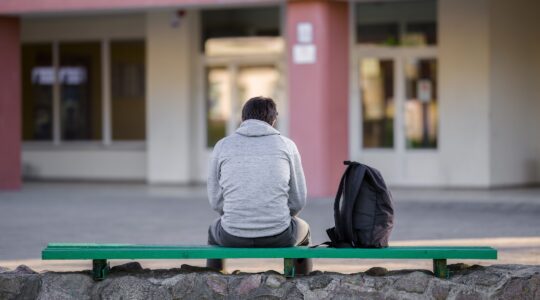In the past decade, Jewish overnight camps have seen their status rise dramatically.
Thanks in large part to the New York-based Foundation for Jewish Camp, tens of millions of dollars have been invested in professional development for directors and staff, capital campaigns, new specialty camps and incentive scholarships to grow enrollment.
And a recent study conducted by sociologist Steven M. Cohen makes the case that Jewish sleep-away camps are transformative, producing alumni who are dramatically more engaged and active in Jewish life than their color war- and lanyard-deprived peers.
Not to be outdone, Jewish day camps recently commissioned their own Steven M. Cohen study.
The Jewish Community Centers Association of North America, whose network of day camps collectively reach 65,000-70,000 campers (about 66 percent of them Jewish) and hire 12,000-14,000 staff members (78 percent Jewish) each summer, this week released a study on the “Jewish learning presence” at JCC camps.
Based on surveys of camp directors, staff and parents, as well as on-site visits and interviews at 11 camps, the study does not explore long-term effects on participants. Rather, it points to the need for staff training to help the day camps better “deliver Jewish meaningful experiences.”
“Increasing the Jewish competence and motivation of the staff, and enhancing the Jewish educational leadership of the directors, will undoubtedly help day camps achieve their potential as environments for Jewish learning, pipelines for Jewish living, and incubators for Jewish identity,” the study concludes.
David Ackerman, director of the JCCA’s Mandel Center for Jewish Education, said the study finds that “the more Jewish background the camp director brings to the camp, the more likely that there will be a significant Jewish presence” in the programming.
It also finds that Jewish day camps can be an important learning experience for teen and college-age staff members, most of whom do not see themselves as Jewish leaders but “acknowledge they have learned Jewish things by virtue of participating as staff at JCC day camps,” Ackerman said.
“We should be thinking about the staff not only as drivers but as targets for camp’s Jewish message,” he said.
Another key finding, he said, is that contrary to conventional wisdom among camp directors, who worry that stepped-up Jewish programming will alienate parents, the majority of Jewish parents interviewed reported that they would like to see the same or greater level of Jewish programming.
Other findings include:
n Jewish staff members are “fairly representative of the American Jewish population as a whole, not particularly more or less engaged in Jewish matters.” Sixty-six percent attended Hebrew school, while 21 percent attended day school and 13 percent never attended a Jewish school. A slim majority (52 percent) of the Jewish staff see being Jewish as “very important.”
n Of the 115 JCC day camp directors who responded to the survey, 78 percent are Jewish, 70 percent are female and just over half (53 percent) report belonging to a synagogue.
n Ninety-two percent of camp directors reported that their camps feature “programs that teach Jewish values”; 86 percent offer Kabbalat Shabbat programming, 82 percent incorporate “singing Jewish songs” and 81 percent feature Israeli cultural programs.
The New York Jewish Week brings you the stories behind the headlines, keeping you connected to Jewish life in New York. Help sustain the reporting you trust by donating today.




